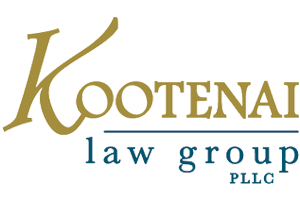Estate Planning
Revocable Versus Irrevocable Trusts
By Robert J. Green, Esq. While trusts are not necessary for all my clients, many of them are interested in avoiding probate and after exploring all the options find that a trust will be the best way to do that. A common question comes up once a client decides to use a trust: should the…
Read MoreSpecial Considerations for Women When Estate Planning
American women live on average 4.8 years longer than American men.Because women typically outlive their spouses, their estate planning documents are usually the ones that actually determine what happens to the family assets. However, the longer life span of women also means that women are more likely to experience a period of time at the end of their lives when they are unable to make their own decisions because they are incapacitated due to some medical condition.
Read MoreHow Old Do You Need to Be to Benefit from an Estate Plan?
Most people that I meet associate the phrase “estate plan” with the rich and the elderly. I have written here before about why it is untrue that only the wealthy need an estate plan. Today we will examine how a person’s youth impacts their need for estate planning.
Read MoreA Last Will & Testament is Not the Same Thing as a Living Will
Your Last Will & Testament is also where you appoint a legal guardian for your minor child in case both of the child’s parents are deceased. Doing so guides the court system and the family regarding the your wishes. For parents of young children, this may be the single most important part of a Last Will & Testament.
Read MoreHow Often Does an Estate Plan Need to be Updated?
A question I regularly hear regarding all types of estate planning documents is “how often should this be updated?” The answer depends, of course, on the individual circumstances. However, there are some general guidelines that can be helpful. Two questions to think about regarding updating your legal documents include – have there been any major life events since the documents were last updated, and have you looked through the documents in the past 2 years?
Read MoreSnowbirds Need to Pack Something Extra Before Heading South For The Winter
Many of our clients in North Idaho and Eastern Washington are “snowbirds”. I know some clients are even headed south early this year to escape the smoky air we’ve endured lately. If you are headed somewhere warm to spend the winter months, you will want to be sure you have packed more than just your sunscreen.
Read MoreHow Important is Estate Planning if You Aren’t Rich?
I’m often asked if a person needs a Power of Attorney document if that person already has a Last Will and Testament (“Will”). It is a good question. The simple answer for almost everyone is yes – you should have both a Will and a Power of Attorney document. Let’s look at what purpose each serve and why both are necessary.
Read MoreWho Has the Final Say About Organ Donation in Idaho?
Often, clients have asked whether this authorization should be in their Last Will and Testament (“Will”). Your Will is a document that is rarely looked at by anyone other than you until after your death – and certainly your doctor or attending health care providers at a hospital are unlikely to have ever read your will.
Read MoreWHO HAS THE FINAL SAY ABOUT ORGAN DONATION IN IDAHO?
There are several things I think we should all understand about how Idaho law addresses the issue of organ donation and how we can use our estate planning documents to help make sure our wishes on this topic are followed. It is important to know that in Idaho, the law addresses organ donation from two…
Read MoreFollow These 4 Steps to Assess Your Own Estate Planning Documents
Estate planning consist primarily in putting into place those legal documents that each of us need to deal with what happens if we become incapacitated and what happens when we die. If you have estate planning documents in place and have any doubt about whether those documents are complete or up to date, the best thing you could do is bring them to an estate planning attorney to review and discuss with you. Some law firms, like mine, may do this for you without charge as a complimentary consultation. Getting an expert’s advice on the status of your documents is very valuable.
Read More









